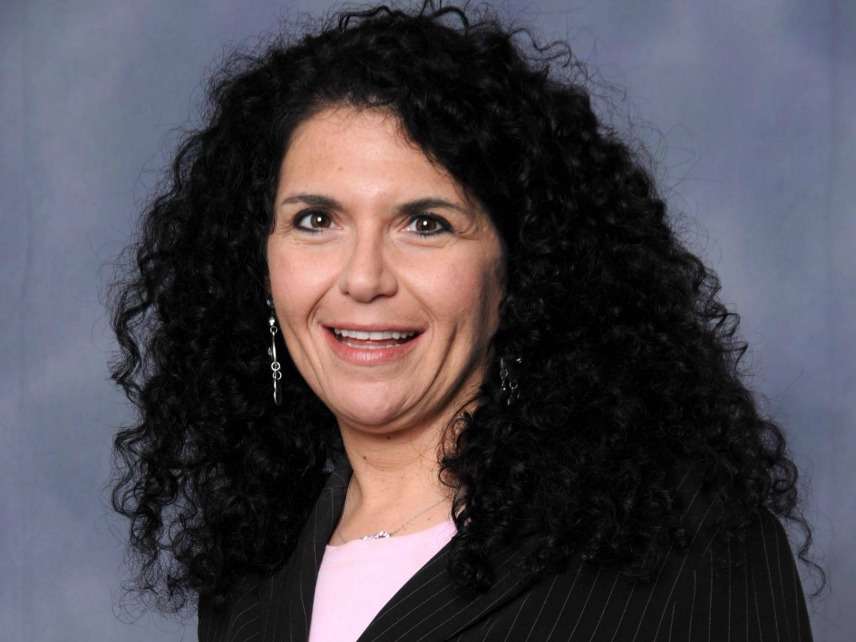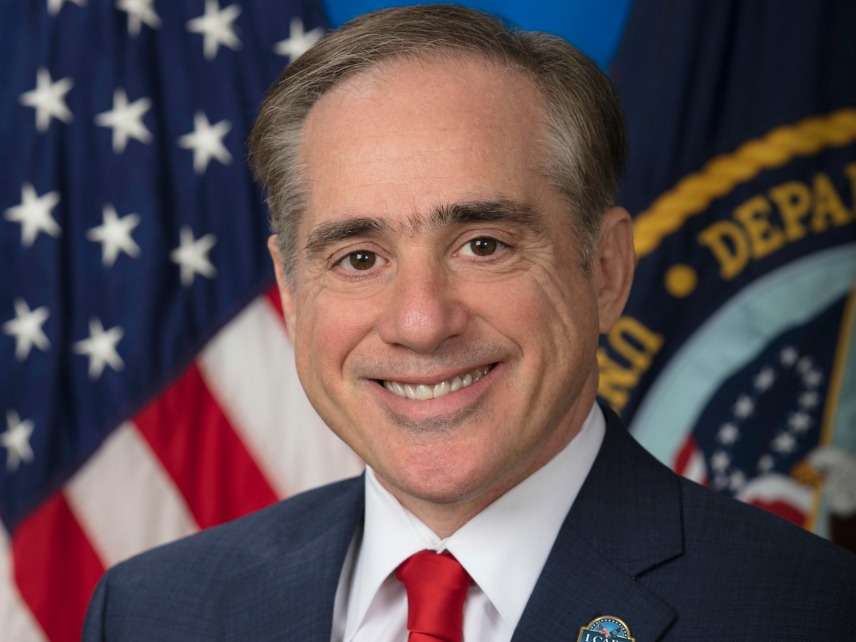Researcher Says V.A. Obstruction Jeopardizes Study of Marijuana As PTSD Treatment
Although the research has federal approval, the Phoenix V.A. hospital is blocking efforts to recruit subjects.

The first U.S. study to test marijuana as a treatment for posttraumatic stress disorder, which had been in the works since 2009, finally got under way last February and has enrolled 25 subjects since then. But the lead researcher, Phoenix psychiatrist Sue Sisley, says the study, which needs a total of 76 subjects, has been jeopardized by a lack of cooperation from the local Veterans Health Administration hospital.
"Despite our best efforts to work with the Phoenix VA hospital and share information about the study," Sisley writes in a recent letter to Secretary of Veterans Affairs David Shulkin, "they have been unwilling to assist by providing information to their patients and medical staff about a federally legal clinical trial happening right in their backyard that is of crucial importance to the veteran community." At the current recruitment rate, she says, the study will not be completed within the time required by a $2.2 million grant from the Colorado Department of Public Health and Environment.

According to Sisley's letter, the hospital's director, RimaAnn Nelson, "is citing regulations that she cannot support research that does not utilize VA personnel." Sisley is asking Shulkin to intervene so that she can post flyers advertising the study at the hospital, distribute referral letters that can be used by interested patients, and present a lecture about the research to the medical staff. (She says she gave a talk at the hospital four years ago and was told she'd be invited back once the study had received all the approvals needed to proceed with recruitment.) Sisley also asks that the hospital "include information about the PTSD/cannabis study in any kind of electronic communications that are shared with VA staff and patients."
Sisley and her colleagues are looking for veterans in the Phoenix area with "chronic, treatment-resistant PTSD arising from their combat-related service in the US armed forces and with duration of PTSD lasting at least six months." The FDA-approved protocol for the study, which is sponsored by the Multidisciplinary Association for Psychedelic Studies (MAPS), lists 14 inclusion criteria and seven exclusion criteria. Sisley says she and the other researchers had to screen more than 300 potential subjects to identify 25 who met the criteria. They need 51 more, which Sisley figures will require screening another 700 or so veterans.
"If we cannot recruit enough veterans," Sisley writes in her letter to Shulkin, "we will need to change the inclusion criteria to allow subjects with PTSD from any cause to enroll in the study. This is a change that we do not want to make if at all possible."
Sisley says the subjects enrolled so far have nearly completed the study. "Once those vets are through, there will be no reason to pay lab staff to sit aimlessly waiting for more veterans to miraculously appear," Sisley says. "There will be no improvement in veteran volunteers until the Phoenix V.A. hospital agrees to start cooperating with us. They have blocked access to appropriate Phoenix area veterans with PTSD for the past two years now."
When I ask Paul Coupaud, director of communication at the Phoenix V.A. hospital, why Sisley can't advertise her study there, he notes that "marijuana is still considered federally illegal," adding that "we can't tell people to go and try something that's illegal." When I point out that the study has been approved by the Food and Drug Administration and is therefore legal under federal as well as state law, Coupaud says the real obstacle is that department regulations say "we cannot advertise any research study other than what V.A. is doing; we can't advertise outside research." He said Secretary Shulkin could amend that rule. I emailed the Department of Veterans Affairs about Sisley's complaints last week but have not heard back.
The MAPS study has been focused on veterans from the beginning. Rick Doblin, executive director of MAPS, credits that fact with helping to clear a bureaucratic logjam that delayed approval of the research. "Veterans being involved changes it fundamentally because there's a national crisis about veterans and suicide and veterans and PTSD," he says, "and veterans are a highly sympathetic patient population."
Twenty-four of the 29 states that allow medical use of marijuana explicitly recognize it as a treatment for PTSD, while three more give doctors enough leeway that they can recommend it for that purpose. "It's seen very clearly as a veterans' issue," says Michael Krawitz, executive director of Veterans for Medical Cannabis Access. But the federal government still classifies marijuana as a Schedule I substance, meaning it has no accepted medical value.
The American Legion, the country's largest veterans group, supports the reclassification of marijuana to facilitate medical research, arguing that it could "help cut the amount of veteran suicides." At its national convention last week, the group approved a resolution saying the federal government should "permit VA medical providers to be able to discuss with veterans the use of marijuana for medical purposes and recommend it in those states where medical marijuana laws exist."
[This post has been edited to correct the study's screening and enrollment numbers.]


Show Comments (10)